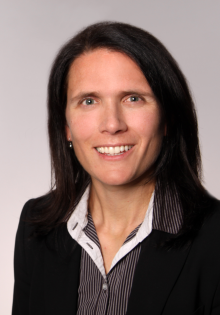A Paderborn University study highlights the pressures for Paralympics participants
The Paralympic Games begin in Tokyo today, a year later than planned. Some 4,500 athletes from 160 countries are stepping up to the starting line under extraordinary circumstances: just like the Olympic Games, the Paralympics will take place with no spectators apart from Japanese schoolchildren. Elite athletes have also had to deal with difficult conditions while preparing for this sporting highlight: many competitions have been cancelled as a result of the coronavirus pandemic and training facilities have been closed for a long period of time, without there always being suitable alternatives. The impact of the pandemic on athletes’ subjective well-being and the pressures they have had to face are being examined by the researchers at Paderborn University’s Inclusion in Sports workgroup. As part of a study funded by the German Federal Institute for Sport Science (BISp), the sport scientists Prof. Sabine Radtke and Dr. Marie Biermann surveyed 1,043 squad members from Olympic and Paralympic disciplines about the pressures, coping strategies and consequences of the coronavirus pandemic. The results show that some Paralympic athletes are worried about their own health, and do not feel ideally prepared for the Games owing to the lack of training opportunities during lockdown.
Early retirement due to lack of preparation options?
36% of the members of the German Paralympic squad who participated in the Paderborn study described themselves as being in a high-risk group for coronavirus, compared with 4% of the Olympic squad respondents. According to Radtke, Paralympic athletes are therefore more likely to be worried about experiencing severe symptoms if they become infected with the coronavirus than an athlete without a disability would be. This has created huge uncertainty during the current pandemic.
In addition, preparations for the Paralympic Games have also been far from optimal for squad members. 64% of respondents from the Paralympic squad reported that their preparations for the Games had been more significantly impacted by the coronavirus pandemic than those of athletes without disabilities. Athletes stated the reasons for this as being a lack of or severe reduction in training and competition opportunities during the pandemic, and the lack of alternative training options (depending on the athlete’s disability type). Marie Biermann explains: “Athletes with prostheses or in wheelchairs could not just replace their training on tartan track or indoors with jogging on uneven forest ground.” However, over the past year and a half, the pandemic has virtually eliminated not only daily training but also training facilities and competitions. The current study by Paderborn University shows that 40% of the athletes in the German National Paralympic Committee’s top squad did not participate in a single competition during the first twelve months of the pandemic. “In view of this, it is no surprise that in March 2021,14% of the Paralympic squad members surveyed were considering ending their sporting careers early”, Radtke summarises.
Delight overshadowed by a rise in coronavirus cases
Nearly a third of the members of the Paralympic squad who participated in the survey stated in March that they were against holding the Paralympic Games this year. They cited factors such as the fact that some Japanese people were protesting against the decision to hold the Games despite the pandemic. “Some athletes feel that holding the Games despite resistance from the Japanese population cannot be justified”, Biermann explains. This means that for some athletes, their delight that they are able to participate in the Paralympics is overshadowed by the country’s rise in coronavirus cases. A few days before the opening ceremony, the coronavirus situation in Japan has worsened, and there are already coronavirus cases in the Paralympic Village. As Radtke explains: “Some Paralympics competitors are therefore afraid that they could end up like the cyclist Simon Geschke, who tested positive during the Olympic Games.”





